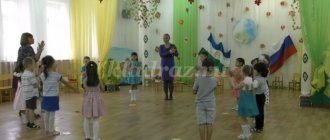Creativity flourishes
After completing his education, Tchaikovsky moved to Moscow, where he became a teacher at the conservatory. In 1878 he left Russia for Italy, and then to Switzerland. There he created his famous operas “Eugene Onegin” and “Oprichnik”, wrote plays that were included in the collection “Children’s Album”, composed the cycle “The Seasons” and many others. He constantly travels to different countries, where his concerts delight the audience.
Pyotr Ilyich Tchaikovsky is a great Russian composer.
Personal life: “I can’t live without you”
Pyotr Tchaikovsky. Photo: gq.ru
Pyotr Tchaikovsky with his brothers. Photo: gq.ru
Pyotr Tchaikovsky with his wife Antonina Milyukova. 1877. State Memorial Musical Museum-Reserve P.I. Tchaikovsky, Klin, Moscow region
In 1868, Pyotr Tchaikovsky met the French opera singer Desiree Artaud, who came on tour to Russia that year. For her, the composer composed several romances and a piece for piano. He wrote to Brother Modest: “Ah! Modinka, if only you knew what a singer and actress Artaud is! Never before have I been under such a strong charm of an artist as this time. How you would admire her gestures and the grace of her movements and poses!” Tchaikovsky wanted to marry Artaud, but her parents opposed the wedding. The composer and singer broke up and no longer communicated.
Tchaikovsky's only wife was Antonina Milyukova, a student at the Moscow Conservatory. They met in 1872 at one of the musical evenings. Milyukova sent Tchaikovsky letters with declarations of love.
“Will you really stop corresponding with me without even seeing me once? No, I’m sure that you won’t be so cruel!.. I’ll be ready to throw myself on your neck and kiss you, but what right do I have to do that? You may take this as impudence on my part... I cannot live without you, and therefore I may soon commit suicide. So let me look at you and kiss you so that in the next world I will remember this kiss. Goodbye. Yours forever A.M.”
Antonina Milyukova, from letters to Pyotr Tchaikovsky
Tchaikovsky and Milyukova married in 1877. The news of the wedding delighted the composer’s father: “I crossed myself and even jumped for joy. God bless! God bless you!!!" However, the composer and singer soon broke up. They never finalized the divorce, but they stopped living together.
Childhood
Pyotr Ilyich Tchaikovsky was born in the village of Votkinsk, Vyatka province (Udmurtia) in 1840. He grew up in a large family of an engineer: besides him there were three more children - two brothers and one sister. The boy's parents were fond of music; they knew how to play the flute and piano. So little Tchaikovsky fell in love with the melodic sound of musical instruments from early childhood. At the age of 5, the boy had already mastered the piano, and after another 2 years he played notes. In 1850 the whole family moved to St. Petersburg. In 1854, the mother of the future composer died of cholera. The children were left in the care of their father, who also fell ill but managed to recover.
Painting by artist A. Parkhomenko “Petya Tchaikovsky”.
Moscow period
1866 P. Tchaikovsky was invited to Moscow (at the invitation of Nikolai Rubinstein) to teach composition, music theory and harmony at the conservatory. .
Pyotr Ilyich found himself in the whirlpool of cultural life of the “second capital” of the empire. I met L. Tolstoy, A. Ostrovsky, and the composers of the “Mighty Handful” (A. Borodin, M. Rimsky-Korsakov, M. Mussorgsky, Ts. Cui, M. Balakirev). At the same time he wrote the fantasy overture “Romeo and Juliet” and the First Symphony.
The 1870s were extremely fruitful for the composer:
- Operas “Oprichnik” and “Blacksmith Vakula” (later – “Shoes” (“Cherevichki”), libretto based on N. Gogol’s story “The Night Before Christmas”);
- music for A. Ostrovsky's play “The Snow Maiden”;
- Swan Lake ballet";
- Concerto for piano and orchestra No. 1;
- Second and third symphonies; fantasy "Francesca da Rimini";
- three string quartets
The above is only a part of the works written by Tchaikovsky during this inspired creative period.
1876 Peter and his brother Modest visited Paris. The opera “Carmen” by J. Bizet, which triumphantly performed on the stage of the Grand Opera for about a year, made an extraordinary impression on the composer. On the way home we stopped in Bayreuth for the Wagner Festival, where we met Richard Wagner himself and Franz Liszt.
Brother of Pyotr Tchaikovsky - Modest
Teacher and music critic
Alexander Lopukhov. Portrait of Pyotr Tchaikovsky (fragment). 1981. Private collection
Anatoly Tumbasov. Portrait of Pyotr Tchaikovsky (fragment). 1950. Private collection
Grigory Svetlitsky. Portrait of Pyotr Tchaikovsky (fragment). 1938-1945. Memorial House-Museum of Grigory Svetlitsky, Kyiv, Ukraine
In early 1866, at the invitation of Nikolai Rubinstein, brother of composer Anton Rubinstein, Tchaikovsky moved from St. Petersburg to Moscow to teach at the newly created music courses, which were soon transformed into the Moscow Conservatory. He had about ninety students annually.
Tchaikovsky was a demanding teacher and gave them a lot of tasks. Professor of the Moscow Conservatory Nikolai Kashkin recalled: “Impeccable integrity, intelligence and knowledge of the matter involuntarily forced him to be a good teacher, especially for the more talented students, he tried by all means to encourage hard, persistent work.”
Pyotr Tchaikovsky, First Symphony (“Winter Dreams”), part I “Dreams on a Winter Road”
Pyotr Tchaikovsky, First Symphony (“Winter Dreams”), part II “Gloomy Land, Foggy Land”
Pyotr Tchaikovsky, First Symphony (Winter Dreams), movement III
Pyotr Tchaikovsky, First Symphony (“Winter Dreams”), movement IV, finale
At the same time, Tchaikovsky was engaged in creativity: he composed the first symphony “Winter Dreams”. He played it in St. Petersburg at a concert of the Russian Musical Society in Moscow in early 1868. The public greeted the symphony with approval, although the composer's teacher Anton Rubinstein criticized it.
Soon, at the Aristocratic Club, Tchaikovsky met and became friends with playwright Alexander Ostrovsky. While still studying at the conservatory, the composer wrote an overture based on his play “The Thunderstorm”. Now he wanted to create an opera based on the same work, and he needed a libretto. Ostrovsky refused: Vladimir Kashperov was already working on an opera based on The Thunderstorm.
However, the playwright suggested that Tchaikovsky write music based on another work - the comedy “The Voevoda, or a Dream on the Volga.” Ostrovsky himself wrote the libretto for this opera. The premiere of “The Voyevoda” took place at the Bolshoi Theater in 1869. The opera was well received by the public, and critics wrote that the music and the libretto were poorly combined. The composer destroyed almost the entire score of the opera.
Pyotr Tchaikovsky, Romeo and Juliet Overture
During these same years, Tchaikovsky met the critic Vladimir Stasov and members of the “Mighty Handful” association. On the advice of Mily Balakirev, he began to write program music - instrumental works without words. For the new overture, the composer took the plot of William Shakespeare's tragedy Romeo and Juliet. Tchaikovsky finished it quickly - in two months. The composer first performed “Romeo and Juliet” in 1870 at the next concert of the Russian Musical Society.
“There is no doubt that the music was created with extraordinary inspiration and enthusiasm. In the overture, for the first time, the main themes of Tchaikovsky’s future work sounded: the psychological drama of unfulfilled love and the unsatisfied youthful passion in contact with the absorbing theme of death.”
Alexander Poznansky, “Tchaikovsky” (book from the “Life of Remarkable People” series)
Pyotr Tchaikovsky, play "Humoresque"
Pyotr Tchaikovsky, play "Nocturne"
In 1871, Tchaikovsky again visited abroad. The composer was invited on the journey by his student from the Moscow Conservatory, Vladimir Shilovsky. They visited Germany and Italy, where Tchaikovsky wrote two plays - Humoresque and Nocturne. The composer dedicated them to Shilovsky.
At this time, Tchaikovsky was experiencing financial problems. To earn money, he began writing for the newspapers “Russian Vedomosti” and “Modern Chronicle”. The composer's articles on musical works were popular and controversial. The composer worked in newspapers until 1875.
“He was no longer an official, he was a musician”
Yan Tsionglinsky. Portrait of Pyotr Tchaikovsky (fragment). 1894. Smolensk State Museum-Reserve, Smolensk
Daniil Chashechkin. Portrait of Pyotr Tchaikovsky (fragment). 2015. Private collection
Alexander Khristinenko. Portrait of Pyotr Tchaikovsky (fragment). 1999. Private collection
In 1859, Tchaikovsky graduated from the Imperial School of Law. His certificate showed excellent grades in almost all subjects, and the future composer was hired by the Ministry of Justice. He continued to communicate with his fellow students at the school, among whom were many representatives of high society. Tchaikovsky visited their salons and musical evenings.
In 1861, Ilya Tchaikovsky’s friend Vasily Pisarev invited the future composer to travel with him to Europe as a secretary and translator. This trip was Tchaikovsky’s first, but later he wrote to his sister: “If I have done some colossal stupidity in my life, then this is my trip. Do you remember Pisarev? Until now I had no idea that there were such fabulously vile individuals in the world; Now it’s not difficult for you to understand what it was like for me to spend three months inseparable from such a pleasant companion.” During his travels, the composer visited Germany, France and the UK.
At home, Tchaikovsky returned to work in the Ministry of Justice. He was not promoted in the service, although the composer’s brother Modest Tchaikovsky recalled: “He not only worked hard at Malaya Sadovaya, but brought work home and wrote reports at night.” On the advice of his father, Tchaikovsky combined work and music studies. From September 1861, he attended classes with Anton Rubinstein at the Russian Musical Society (RMS), and in 1862 he became one of the first students at the newly opened St. Petersburg Conservatory. Tchaikovsky had no success in his service at this time. The position of official of special assignments, which the composer was counting on, went to another ministry employee, and in 1863 he quit and concentrated on creativity.
“Now he was no longer an official, he was a musician: his dismissal from a regular position in the Ministry of Justice happened unnoticed - he simply stopped going to the department. By the beginning of the second year, he had fifty rubles a month worth of lessons. His father's financial affairs were getting worse and Tchaikovsky could not hope for his help. Sometimes he had to run on foot from Kolomna to Okhta, his smart frock coats were worn out; some of his former acquaintances on Nevsky stopped recognizing him, perhaps intentionally, but, however, probably sincerely: he grew his hair long and wore a wide-brimmed hat.”
Nina Berberova, Tchaikovsky
Pyotr Tchaikovsky, Thunderstorm Overture
Many relatives did not accept Tchaikovsky's decision. The composer, his father and younger brothers had to move to a cheaper apartment and save on clothes. Tchaikovsky wrote to his sister: “Don’t think that I imagine becoming a great artist, I just want to do what my vocation leads me to; whether I be a famous composer or a poor teacher, my conscience will be calm.” At the conservatory, he was one of the best students: together with another student of the institution, Herman Laroche, he played Mikhail Glinka’s opera “A Life for the Tsar” with four hands, composed his first works - the overture “The Thunderstorm” based on the play by Alexander Ostrovsky, a cantata based on Friedrich Schiller’s ode “To joy", the play "Characteristic Dance".
Laroche wrote to Tchaikovsky: “You are the greatest musical talent of modern Russia. I see in you the greatest, or better yet, the only hope for our musical future.” The composer graduated from the conservatory in 1865 with the highest award - a large silver medal and the title of “free artist”.
Interesting facts from life
Much is known about Tchaikovsky’s life, but not everyone knows about some facts.
- He created not only musical works, but also wrote poems, as well as texts for his operas.
- The music teachers who gave lessons to Tchaikovsky did not see any special talent in him.
- The composer loved listening to Mozart's music.
- Pyotr Ilyich traveled all his life. If he spent a long time in other countries, he missed his homeland. But even in Russia he could not live in one place for long.
- The musician was a bad conductor. Even at school he had the lowest grade in this subject.
- The great composer helped put out a fire in the city of Klin, while other people just stood and watched.
- For several years, Pyotr Ilyich worked as a journalist in a newspaper. He wrote notes and messages for publishing houses, but did not sign his real name.
- In honor of the great composer in 1956, at the request of the residents, the city of Tchaikovsky was named. Previously, it was a small settlement of workers called Saigatka. Gradually it grew into a city. It is located 37 kilometers from the village where the musician was born.
Monument to the composer in the city named after him.





